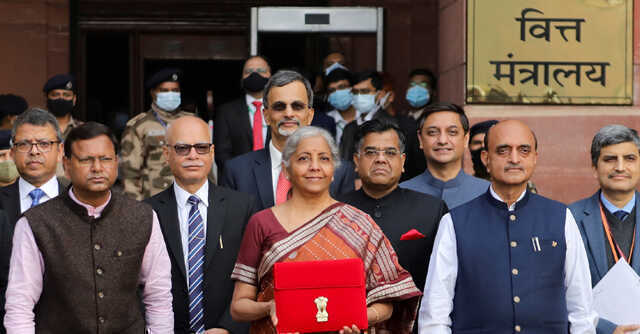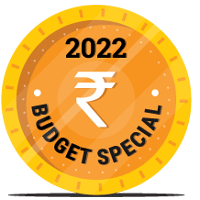
Budget 2022: From tech talk to action; Budget provides digital implementation, application roadmap


 From digital assets and payments, blockchain and artificial intelligence, to drones for farmers and agricultural services, this Union Budget was heavily loaded with technology terms. But it was not all talk about incentives as the Indian government has done in the last two years--this year’s Budget even focused on technology implementation.
From digital assets and payments, blockchain and artificial intelligence, to drones for farmers and agricultural services, this Union Budget was heavily loaded with technology terms. But it was not all talk about incentives as the Indian government has done in the last two years--this year’s Budget even focused on technology implementation.
For instance, instead of providing incentives for the development of blockchain technology within the country, Finance Ministry (FM) Nirmala Sitharaman announced the formation of a central bank digital currency (CBDC)--a move that has been in the works for a while now.
“Overall, the digitization theme is being carried forward and will be the backbone for new investments in education, healthcare, agriculture, banking, payments, and also to streamline government procurement & payments,” noted P.N. Sudarshan, partner and TMT leader, Deloitte India.

In her budget speech, Sitharam also said the government will launch a public private partnership (PPP) scheme for “delivery of digital and hi-tech services” to farmers. “Use of ‘Kisan Drones’ will be promoted for crop assessment, digitization of land records, spraying insecticides, and nutrients,” she added. In addition, states will be “encouraged to revise syllabi of agricultural universities” to facilitate organic farming, modern-day agriculture and more.
Further, the Budget also announced the creation of a fund that will be facilitated through the National Bank for Agriculture and Rural Development (NABARD), to finance startups and “rural enterprise” relevant for farm produce value chain. “The activities for these startups will include inter alia, support for farmer produce organizations (FPOs), machinery for farmers on rental basis at farm level, and technology including IT-based support,” the FM said during her speech.
To be sure, the government also announced the issuance of electronic passports, or e-passports, which will use embedded chips and “futuristic technology”. These are set to roll out in 2022-23, and should facilitate contactless immigration and more. Countries like Singapore, etc. already have scanners which allow passports to be scanned instead of being manually entered into a database.

The focus on implementing technology wasn’t limited to business use cases alone. The FM also announced a Unified Logistics Interface Platform (ULIP), which will be driven by an application programming interface (API) to facilitate the “efficient movement of goods through different modes, logistics cost and time”.
Reskilling was another focus area. According to Nitin Bansal, managing director, India at telecom firm Ericsson, the Digital Ecosystem for Skilling and Livelihood stack, or the DESL-Stack e-portal, announced in the Budget will help upskill Indian youth “as per industry needs” and help fill talent and skill gaps in the industry. The DESL stack, according to the FM’s speech, aims to skill, reskill and upskill citizens through online training.
Like the ULIP, the DESL stack will also be API-driven. API driven platforms allow others to build apps and services on top of them. APIs are at the core of how apps like Uber or Zomato can tap into something like Google Maps for navigation, instead of having to build their own mapping service.

Other than platforms and services, the FM also said infrastructure status will be granted to the data centre industry, which acts as the backbone of most digital services. As reported by Mint last week, data centre players like Equinix, Ctrls Datacentres and more had also sought industry status from the budget, however, industry players said that granting infra status is a good start too.
“Infrastructure status allows data centers to play a key role in enabling digital economy as it allows access foreign investments (FDI) and private capital; borrow funds at lower cost and thereby allowing rapid deployment of data centers across the country,” said B.S.Rao, Vice President, Marketing, CtrlS Datacenters.
While the focus on technology is clear here, experts and industry veterans cautioned that implementation will hold the key to success.

“Much of these (policies) are about adopting or operationalising mature tech -– e-passports have been well in use worldwide and there is no reason why India shouldn’t be adopting them. And it's high time we got 5G rolling, and so yes, I fully expect to see spectrum auctions happen,” said tech policy analyst Prasanto K. Roy. “Some of the ambitious ones, like kisan drones, I expect, will be pilots rather than have widespread impact. There’s a lot of basic technology gaps in agriculture to fill, including replacing crop burning,” he concluded.
With inputs from Moumita Deb Choudhury and Vignesh Anantharaj.
